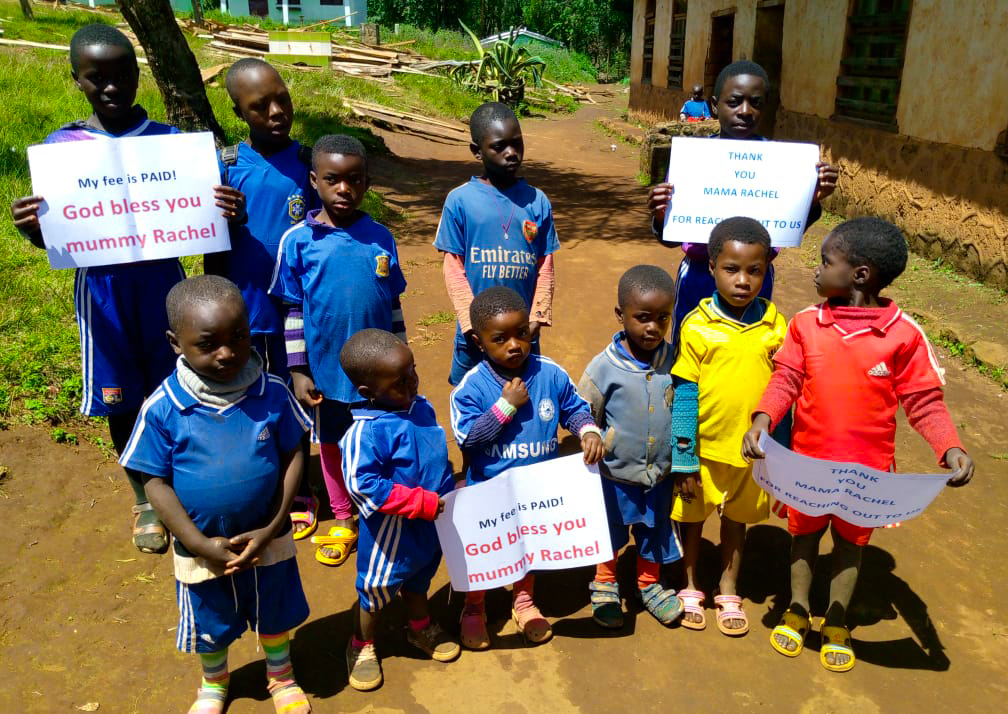by Adonai Beyond
Share

Private donations can play a transformative role in the education of students in Cameroon, where many face significant challenges to accessing quality schooling. From lack of basic learning materials and safe classrooms to limited access to digital resources, students in Cameroon often study under conditions that hinder their ability to thrive academically. While government and international aid have contributed to improvements, private donations offer a unique, flexible, and impactful means of directly addressing the educational needs of Cameroonian students. Here’s how private contributions can make a meaningful difference.
Building and Maintaining Safe Learning Environments
One of the most pressing challenges in Cameroon’s educational system is the lack of adequate infrastructure. In many rural areas, schools lack secure classrooms, electricity, and even basic sanitation facilities. Private donations can be directed to constructing safe, weatherproof classrooms equipped with furniture, windows, and secure doors. A well-maintained and secure learning environment not only enhances students’ physical safety but also boosts their mental focus and engagement. This kind of infrastructure is foundational, as it establishes a conducive environment where students can concentrate on learning without distractions or safety concerns.
Providing Essential Learning Materials
Many Cameroonian students face a shortage of essential learning materials like textbooks, notebooks, and stationery. For children from low-income families, these costs are often out of reach, leading to a disadvantage in accessing education and performing academically. Private donations can help bridge this gap by funding essential school supplies, allowing students to engage fully with the curriculum. Furthermore, donations could go toward establishing shared school libraries, which would provide students with access to a wider range of books, reference materials, and educational resources that are otherwise unavailable.
Supporting Scholarships for Marginalized and At-Risk Students
In Cameroon, many students—especially girls, orphans, and those from impoverished communities—face barriers to education due to financial constraints. Private donors have the power to sponsor scholarships that target these groups, covering school fees, transportation, uniforms, and other educational costs that might prevent them from attending school. Scholarships offer these students not just access to education but also the opportunity to break the cycle of poverty. Targeted scholarship programs could have a profound and long-lasting impact, as educated students are more likely to secure better jobs, contribute to their communities, and advocate for the importance of education within their own families.
Enhancing Teacher Training and Retention
The quality of education is largely influenced by the competence and motivation of teachers. However, in Cameroon, teachers are often overburdened, undertrained, and underpaid, which affects their ability to deliver quality education. Private donations can fund training programs that help teachers improve their skills, master their subjects, and employ modern, student-centered teaching methods. Donors can also contribute to incentives and support programs aimed at teacher retention, especially in remote areas where teacher shortages are more acute. By investing in teacher development, private donors help ensure that students receive quality instruction from motivated and well-prepared educators.
Promoting Digital Literacy and Access to Technology
In today’s globalized world, digital literacy is essential. However, many students in Cameroon lack access to computers, the internet, and digital learning tools, which puts them at a disadvantage. Private donations can help fund computer labs, provide digital devices, and cover internet access for schools. Moreover, donations could support the creation of digital literacy programs that train students in essential computer skills, opening up new learning opportunities and preparing them for a tech-driven job market. Technology can also help bridge the gap for students in rural areas by connecting them to a world of knowledge through e-learning platforms and virtual libraries.
Supporting Health and Nutritional Programs
Malnutrition and poor health can drastically affect students’ ability to learn. Private donations can support school-based health and nutritional programs that provide meals, vaccinations, and health screenings. For many Cameroonian students, especially those from low-income families, school meals may be their primary source of nutrition. By ensuring that students are healthy and well-fed, donors can significantly improve their concentration, energy levels, and overall academic performance. Health and nutrition programs foster a learning environment where children are physically prepared to succeed in their studies.
Conclusion
Private donations hold significant potential for transforming education for students in Cameroon. By funding essential infrastructure, providing learning materials, supporting scholarships, enhancing teacher training, promoting digital literacy, and addressing health and nutritional needs, private donors can make a profound impact on the lives of Cameroonian students. Unlike traditional aid or government funding, private donations can often be allocated more flexibly and directly, creating immediate change where it’s needed most. Through thoughtful and targeted contributions, private donors can empower Cameroon’s youth, foster a generation of educated and inspired individuals, and contribute to the long-term development of the nation.

